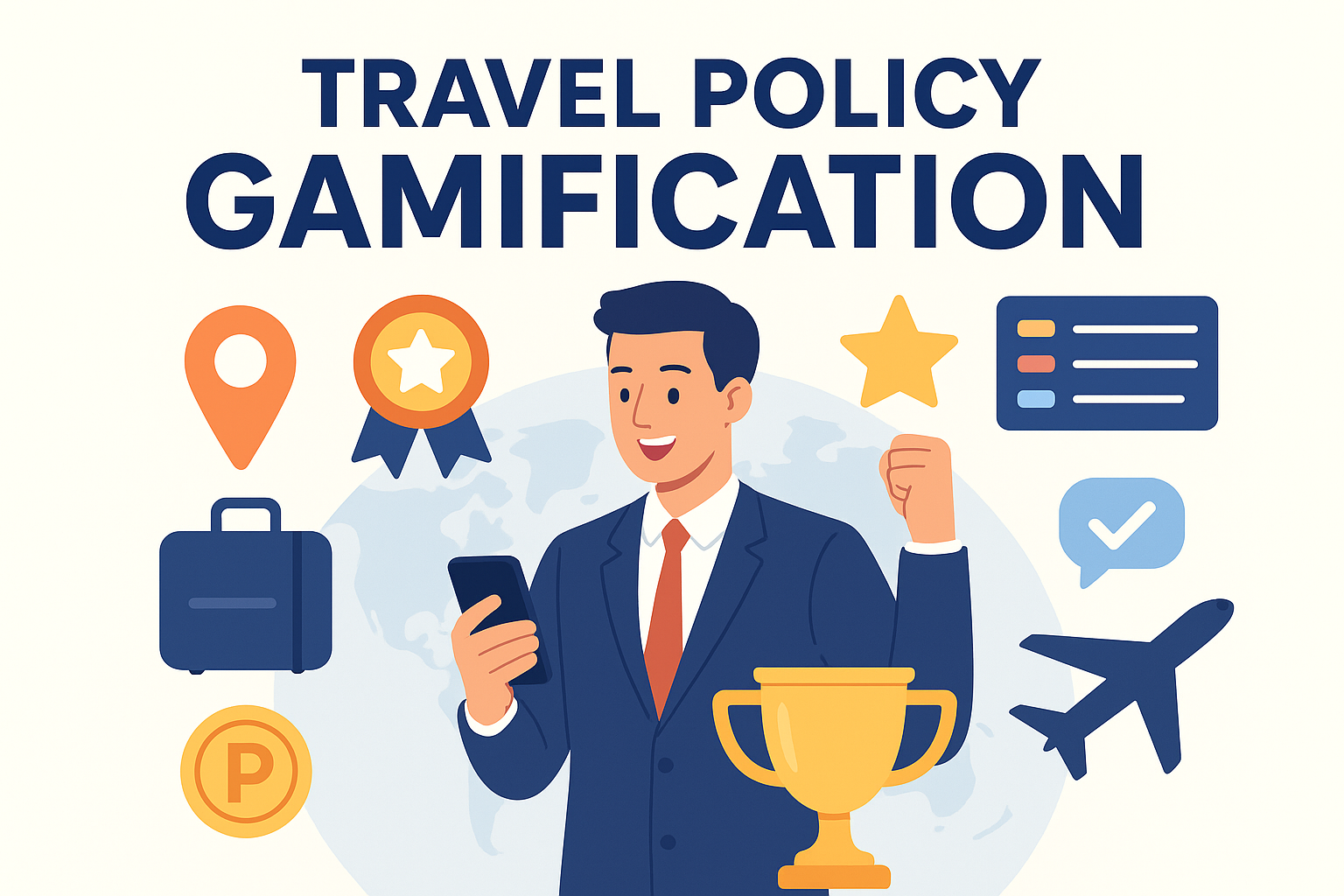Corporate travel policies have traditionally been designed to control costs and ensure employee safety. However, in an era where employee experience has become a strategic priority, traditional methods are no longer sufficient. This is where travel policy gamification comes in – the integration of gamification elements into the daily management of corporate travel.
Practically, gamification transforms compliance with travel policies from a routine and often “tedious” process into an experience with positive incentives, rewards, and a clear sense of achievement. Tools such as points, badges, leaderboards, and more advanced forms of personalized rewards encourage employees to choose the optimal solution not because they “have to,” but because there is something to gain.
Corporate travel gamification
Τεχνητή Νοημοσύνη στα Επαγγελματικά Ταξίδια
Why it Matters for Businesses
The need for gamification is not just a technological or communication trend; it is a strategic response to three key challenges:
First, compliance. In multinational companies with hundreds of travelers, even minor deviations from policy can lead to cost overruns or operational inefficiencies. Gamification makes compliance more attractive, reducing deviation rates.
Second, cost. When employees are incentivized to make more economical choices, the benefit for the company is immediate. Converting a business-class ticket to economy or selecting partner hotels can save thousands of euros annually.
Third, employee experience. The generation of employees traveling today – Millennials and Gen Z – has grown up with gamification in apps, educational tools, and digital platforms. Therefore, incorporating such practices into corporate travel aligns with their expectations and strengthens employee engagement.

International Application Examples
Although travel policy gamification is still in its early stages, the international market is already showing interest. Some companies reward employees when they book economy class, offering points that can be redeemed for other services. Similarly, “Green Points” programs provide incentives for using trains instead of planes for short distances or selecting hotels with sustainability certifications.
In some cases, companies link leaderboards with internal corporate culture: teams or departments compete to achieve the highest compliance with travel policy, with rewards that are not only financial but also symbolic – such as extra vacation days or vouchers for experiences.
The Role of Technology
Technology is at the core of this strategy. Through travel booking platforms that integrate gamification mechanisms, employees can see in real time how their choices affect their score. This transparency, combined with mobile applications offering challenges and rewards, makes the system more attractive.
Additionally, integration with HR platforms allows companies to connect travel behavior with broader KPIs, such as participation in sustainability programs. The use of AI data enables the personalization of incentives, so that a frequent traveler receives different rewards from someone who travels less often.
ESG and Sustainable Development
Linking gamification with ESG criteria is perhaps the most critical aspect for the future of travel policy gamification. As companies strive to reduce their carbon footprint, gamification can serve as a tool for awareness and motivation. Instead of presenting sustainability as a limitation, it can be framed as a challenge with positive rewards.
Imagine a program where each low-carbon choice adds points not only for the individual employee but also for their team, fostering a collaborative culture around ESG objectives. Companies, therefore, do not impose changes but cultivate a culture that encourages responsible behavior.
Strategic Value for Businesses
Travel policy gamification should not be viewed as a standalone tool but as part of a holistic strategy for corporate travel. It links cost control with employee experience and sustainability, creating multiple layers of value.
For companies seeking to remain competitive, implementing such practices is not a luxury but a strategic choice. Particularly in environments with high mobility of personnel, gamification can become a differentiating factor and a talent attraction tool.
The Role of Mideast Business Travel
In this context, Mideast Business Travel acts as a strategic partner for companies. With extensive experience in corporate travel management and continuous monitoring of international trends, Mideast provides the knowledge and tools required to integrate innovative solutions, such as travel gamification, into corporate travel policies.
Mideast understands that each business has its priorities – whether cost savings, improving employee experience, or achieving ESG goals. That is why the company’s approach is not one-size-fits-all, but based on personalization and strategic consultancy. Through tailor-made solutions, Mideast helps companies leverage the opportunities offered by gamification, strengthen corporate culture, and maximize the return on investment in corporate travel.


Comment (0)